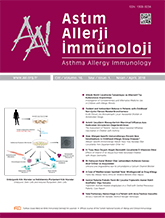


Embryonic stem (ES) cells are derived from cells embedded in the inner cell mass of embryonic blastocytes at the preimplantation stage. These cells have self-renewal and pluripotent capacities. Because of these properties, these cells are thought to be useful in the treatment of many degenerative and genetic diseases. Scientists are forced into new research areas as experiments on human embryonic stem cells become harder because of ethics, politics and religious issues and their limitations related to scientific research. Yamanaka et al. were able to produce induced pluripotent stem (IPS) cells by reprogramming human and mice fibroblasts with four transcription factors (Oct ¾, Sox-2, Klf-4, c-Myc) (OSKM factors) in 2006 and they started a new era. A new field in stem cell research is established as the produced IPS cells have the same functions as embryonic stem cells. A new scientific field in cellular research for in vitro drug experiments has emerged as personal and disease-specific IPS cells can now be produced.